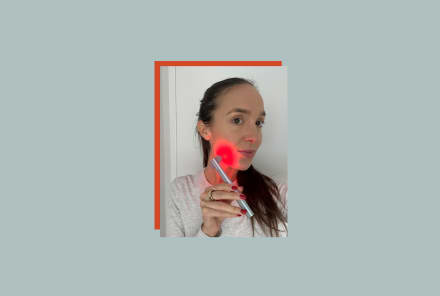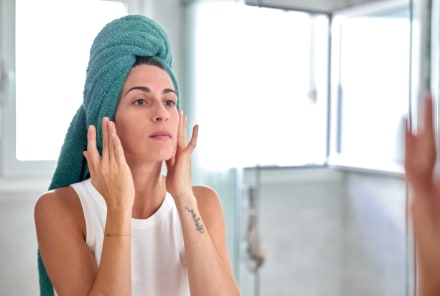Advertisement
An Expert In Chinese Medicine Shares Her Top 9 Tips For Better Sleep


Sleep plays a crucial role in our health. Addressing sleep problems will not only help prevent illness, but it will also go a long way in cultivating health, wellness, and longevity. Different cultures have unique ways of addressing sleep issues. In Chinese medicine, getting better rest is all about balancing yin and yang (learn more about the connection between yin and yang and sleep here) and achieving optimal feng shui in the bedroom. Here are nine ways to start doing just that:
Try a 4-7-8 breath sequence before bed.
Worry, overthinking, and racing thoughts are very yang and make it difficult to fall asleep. To power down the mind before bed, try a breathing exercise to help promote more yin energy, like the 4-7-8 relaxing breath.
Go to sleep earlier.
From 11 p.m. to 1 a.m. are considered the most yin hours of the day, when the energy is calmest. Getting into bed before 11 when possible can help you sync your own biological clock to this relaxing energy.
Make sure your room is cool and dark.
Studies show that bright light before bedtime1 can suppress melatonin production. Investing in some heavy or blackout window curtains will help keep your sleep space dark. In terms of temperature, 65 to 70 degrees Fahrenheit is the optimal range for the bedroom. Your body naturally lowers its temperature during rest, and keeping a cool environment will help you stay in deep sleep.
Try acupuncture.
Acupuncture has been shown to ease many issues including insomnia2. One of the benefits of acupuncture for sleep is that it seems to increase nocturnal secretion of melatonin3, the hormone needed to get deep and restful sleep.
Be mindful of bed positioning.
Feng shui is the art and science of placement, and it's based on the Daoist principles of yin and yang. To make your bedroom a sanctuary for sleep, feng shui philosophy recommends placing your bed so it is facing but not directly in line with your door. This way you can see who is entering the space without feeling like you have no privacy or that energy is racing into the room. If space is an issue, you can add a Japanese door curtain so that even when a door is open, there is a boundary and something to slow energy down.
Be choosy about color.
Color has a very powerful effect in feng shui. If you have a small space, soft neutral tones can help make it feel bigger and lighter. For a relaxing bedroom, cooler colors like blues and grays can slow the energy down.
Move mirrors and family photos out of your sleep space.
Remove any mirrors that face your bed. Since mirrors are thought to reflect energy back to you, they can remind you of physical stressors (like piles of clothes) or worrying, racing thoughts. They can even make it feel like there is a presence watching you sleep. Also, no photos of relatives in the bedroom: You don't want to have any other people's energy in your sleep space.
Lose the TV screens and/or computers.
Leaving your computer in the bedroom can tempt you to engage in screen time before bed, which studies have shown4 can affect sleep. Screens can also be reminders of work-related tasks and get you to start thinking about your to-do list.
Remove clutter.
Finally, keeping your sleep area tidy and clear of distractions goes a long way in promoting mental clarity. Having objects that are serene and make you feel calm will help to set the environment for restful sleep.
Watch Next
Enjoy some of our favorite clips from classes
Enjoy some of our favorite clips from classes
What Is Meditation?
Mindfulness/Spirituality | Light Watkins
Box Breathing
Mindfulness/Spirituality | Gwen Dittmar
What Breathwork Can Address
Mindfulness/Spirituality | Gwen Dittmar
The 8 Limbs of Yoga - What is Asana?
Yoga | Caley Alyssa
Two Standing Postures to Open Up Tight Hips
Yoga | Caley Alyssa
How Plants Can Optimize Athletic Performance
Nutrition | Rich Roll
What to Eat Before a Workout
Nutrition | Rich Roll
How Ayurveda Helps Us Navigate Modern Life
Nutrition | Sahara Rose
Messages About Love & Relationships
Love & Relationships | Esther Perel
Love Languages
Love & Relationships | Esther Perel

















